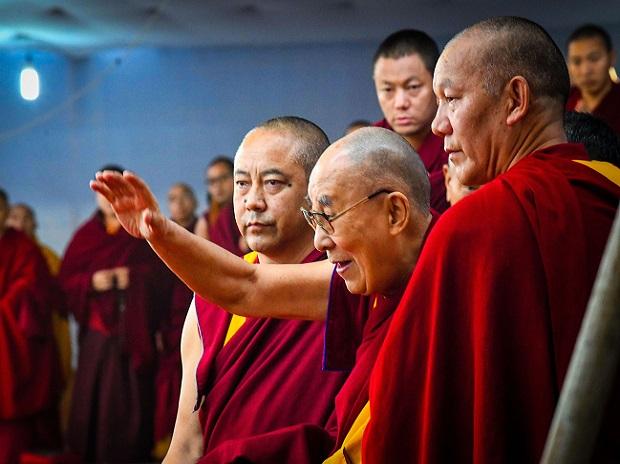By Press Trust of India
Nobel laureate Dalai Lama on Wednesday called for reducing the gap between the rich and poor, saying it is important to realise that taking care of the world is actually taking care of ourselves.
Addressing the third Laureates and Leaders for Children Summit on the Fair Share for Children, the Dalai Lama said children are the future.
The Laureates and Leaders for Children is a coalition for ensuring child rights which is led by Nobel laureate Kailash Satyarthi.
“The future is in our hands so the children are the main human beings who will take care of the world. Taking care of the world is actually taking care of yourselves,” he said.
“Children are our future. We have to think of humanity and poor people who need help, and we need to make efforts on how to reduce the gap between poor and rich,” he said.
Apart from the Dalai Lama, the summit also saw participation from Swedish Prime Minister Stefan Lofven, UNICEF executive director Henrietta Fore, WHO Director-General Tedros Adhanom Ghebreyesus among others.
About the impact of COVID-19 on children, Lofven said this pandemic has put them in a more vulnerable situation in all parts of the world and in all sections of the society.
“Children are at an increased risk of physical, psychological and sexual abuse,” he said.
He called for policies to ensure that respecting, protecting and promoting the rights of the child are at the very core of the decision making.
“We must put human rights, democracy and rule of law at the core of our COVID-19 response. We must acknowledge the political role of children and young people in decision- making. Their voices are crucial in achieving a sustainable, peaceful and democratic future. I am a firm believer in international cooperation. I want to see an increase in our coordinated efforts so that we can ensure a fair, sustainable and democratic recovery from this pandemic,” he said.
Henrietta Fore, executive director of UNICEF, called COVID-19 a child rights crisis.
“Poverty is increasing, inequality is growing and the pandemic has exposed the fault lines of development in every country that continue to separate the haves and have nots,” she said.
“Lockdowns are putting children at risk of child labour and child marriage and the pandemic has thrown over one billion children out of school but it is also showing us what we can do when we join forces to support children,” she said.
Tedros Adhanom Ghebreyesus, Director-General, WHO, said children and adolescents are among the ones most affected by the COVID-19 pandemic.
“In many countries immunization programmes and services have been partially or completely suspended, putting millions at risk and resulting in increase in child mortality and morbidity.
“The pandemic also threatens food security and nutrition of millions of children around the world. Due to school closure, some 368 million children have missed out on school meals. The increased hunger resulting from the pandemic could lead to the deaths of an estimated 10,000 children every month so what can we do about it,” he said.
Firstly, he said there is a need to ensure availability and access to essential services, including for immunization, nutrition, breastfeeding, mental health and social support.
“The countries that chose to reopen schools must do so by following guidance on how to prevent the potential spread of COVID-19 while avoiding stigmatising those who may have been exposed to the virus. Countries must make every effort to ensure that children remain safe from abuse and maltreatment. We cannot continue to fail our young global citizens. The post-COVID recovery must have our children at the central focus; they are the most vital resource,” he added.

